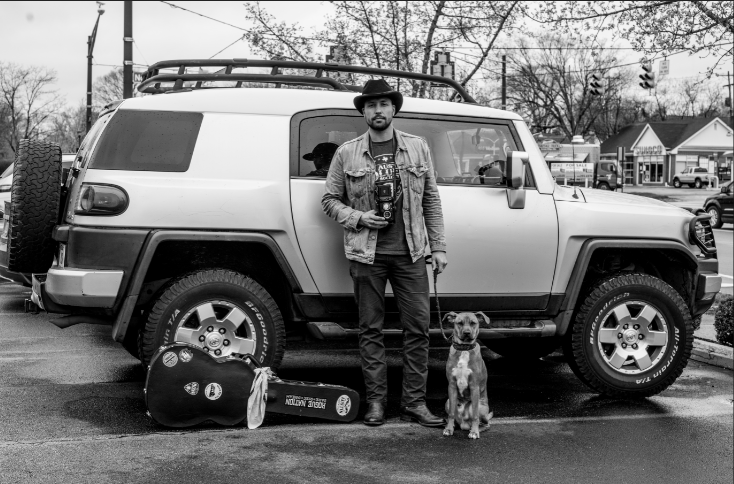I have my gas station diet down pat. Coffee, water, bananas, nuts, hard-boiled eggs, and the occasional peanut butter cup indulgence. Ok, sometimes I also eat beef jerky. You have to learn these things when you spend 10,000 miles on the road talking to small business owners for a podcast.
After over 90 episodes of Small Business War Stories, a few things have happened. First, I started sucking a little less at interviewing people. Turns out it’s not as easy as it seems. But more importantly, I started noticing patterns and lessons in people’s stories. I am collecting many of those in my upcoming book.
The most interesting trend I noticed was small business entrepreneurs returning to the communities where they came from. There is an invisible shift happening where people who once wanted to spread their proverbial wings somewhere else are returning to their hometowns to make things happen. This has always been the case to some extent, but I believe that technology is enabling people to be successful in ways that were very difficult or impossible just a decade ago.
Why are people coming home? After all, at some point they left for the allure and glitz of a larger city, a greener pasture, a shinier future, a perceived better career.
Well…a few reasons:
1) Lower Cost of Living
As a wise man once said… the rent is too damn high! Most people leaving their hometowns make sacrifices in search of a career, a lifestyle, or simply to get out of the place they grew up. Adventure calls! Fortune favors the bold! 50% of your income to live in a shared shoebox? Sure! Do they take cats?
For example, Seth Lee Jones (episode 021) ventured out West to Los Angeles from Tulsa, Oklahoma in his early twenties to learn music. But when it came down to starting his own guitar-making and repair business (and his music career) in his thirties, he returned to his roots. Now he has a great house in Tulsa with a lot of history in a cool part of town for the price of a storage shed in California.
Returning to communities with a lower cost of living gives people a better chance of succeeding by keeping costs low. This can be the difference between getting through a rough patch and going back to working a dead-end job. Because of his skills and popularity on social media platforms, Seth gets customers from far and wide to buy his guitars and his music. He is selling globally, and living locally. You can check him out Monday nights at The Colony, a bar in Tulsa.
2) Community and Belonging
I believe that people can successfully build community anywhere if they set their mind and soul to it. But in my experience, it’s a bit easier in places with a bit of a slower pace of life. When there are fewer competing interests and lower stress, it’s just a little easier to stop and smile at a stranger and to remember the name of the barista who pours your coffee.
There is something special about feeling like you’re a part of the community. And it’s a bit easier to make an impact on a smaller community, especially where you grew up.
This feeling inspired another podcast guest, Cali Noland (episode 034) to move back to Clarksdale, Mississippi after college to start Meraki Coffee Roasters, and its associated non-profit, Griot Arts. Together with her business partner, Ben Lewis, Cali and Meraki roast coffee in the heart of the Mississippi Delta. But the twist is that through their business, they seek to train Delta youth in business and life skills.
Meraki sells coffee in downtown Clarksdale, but like Seth Lee Jones and his guitars, they also sell their coffee beans worldwide. They are able to make a local impact by using technology to appeal to a geographically-diverse customer base. People buy the coffee because it’s great…but also because they can make a difference in the Mississippi Delta, the birthplace of blues music and culture.
3) Technology Changes Everything
Technology is changing the way we relate to our environment. This can be bad, in the sense that it seems like everyone is on their phone all the time. But it can also be good, in the sense that it allows people to make a living pretty much anywhere.
Technology is enabling people to get more creative about how (and where) they make money. Tools such as Slack, Google Meetings, and good ol’ email allow people to collaborate with remote teams. Craftspeople can get a following on Instagram, sell their wares on Etsy, and work with a number of different on-demand shipping companies to get their products to their final destination. It’s easy to take these things for granted, but many of these tasks were much more difficult, if not impossible, as little as a decade ago.
The development of technology will continue to create flexible opportunities. From distance learning, to even more remote office connectivity, to deeper broadband Internet reach, the future is bright for people with initiative and flexibility. That means more opportunities for people to live where they want and do what they like.
I have a strong intuition that this trend will continue over the next few decades. States like Vermont are piggybacking on this trend by offering people $10,000 to move there. Smaller communities will continue to attract people with their lower cost of living, higher quality of life, and an inviting environment to thrive as small businesses and as involved members of their communities.
In the meanwhile, I’ll continue to drive far and wide in search of good stories for the podcast; I never cease to be amazed by what I learn from the small business owners and operators who make up the heartbeat of America.












